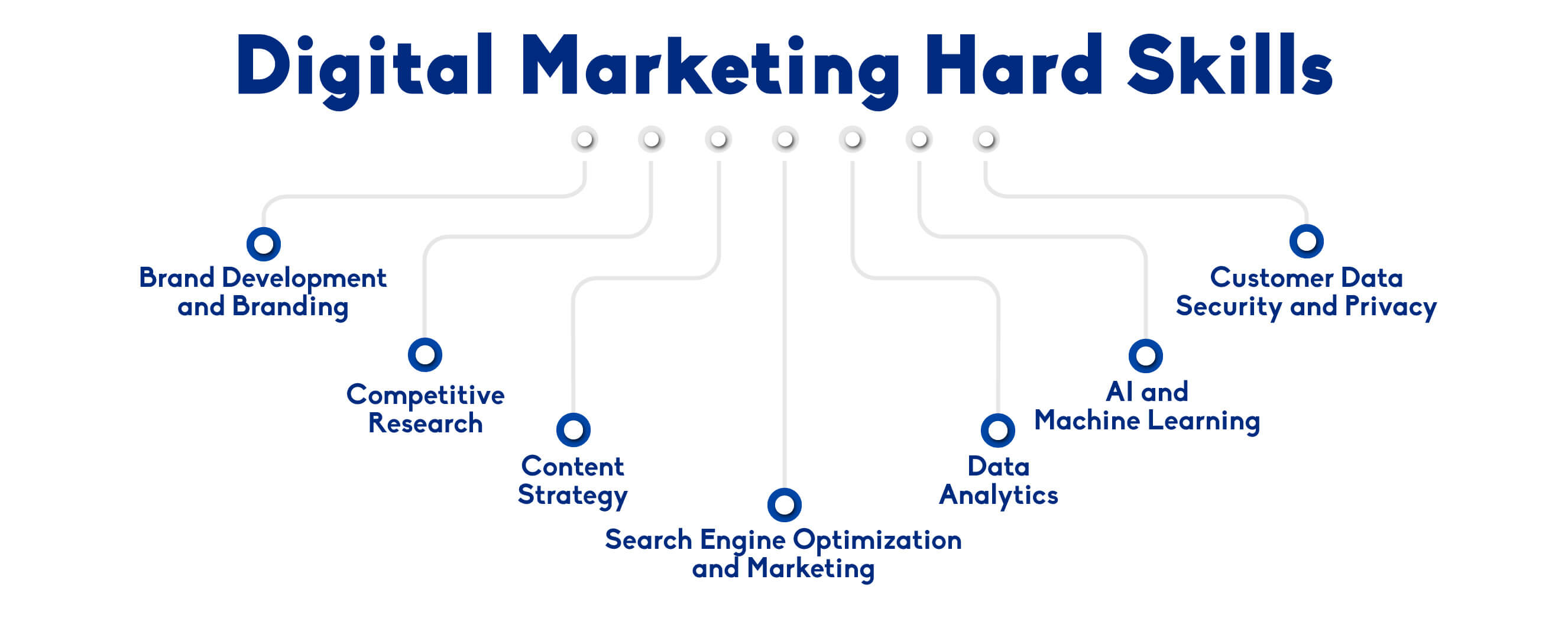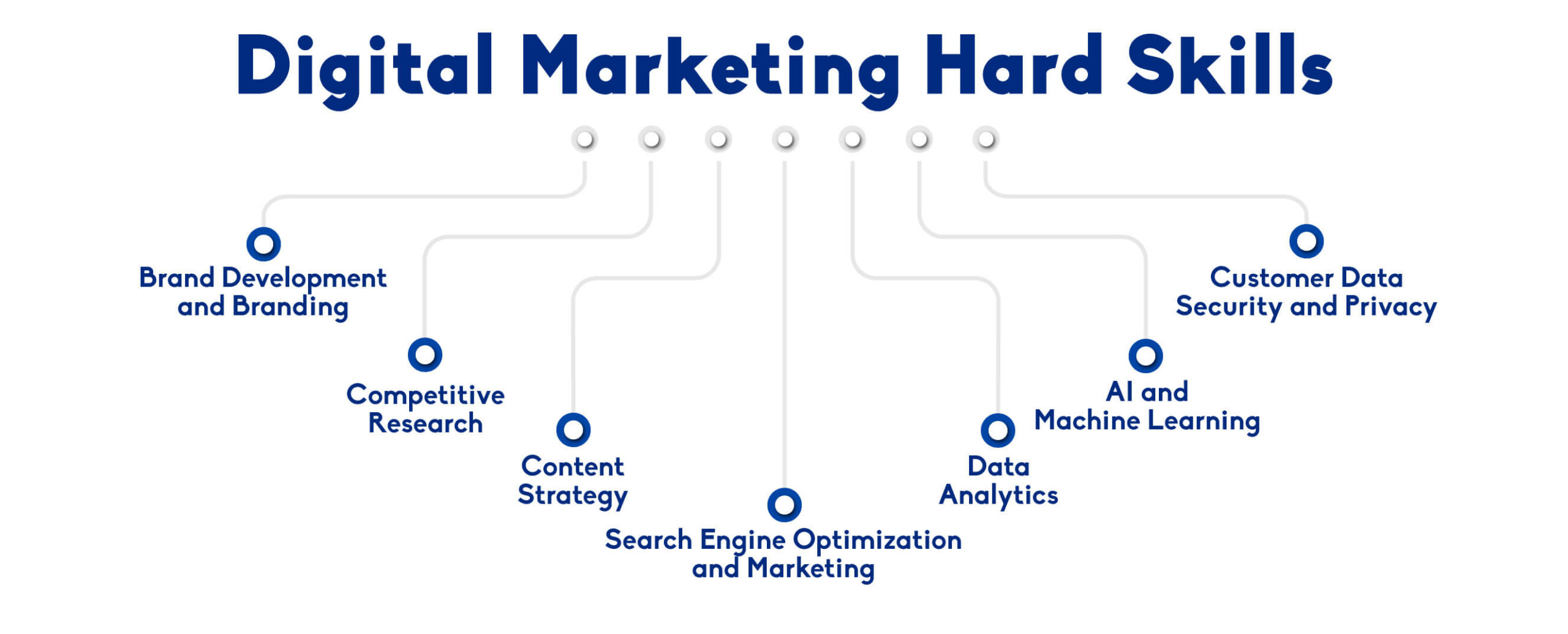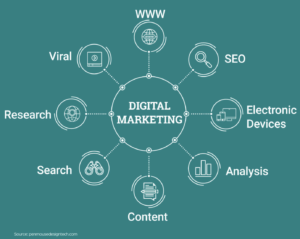Digital marketing has taken the business world by storm, revolutionizing the way companies reach and engage with their audiences. But amidst the buzz and excitement, there is one question that often lingers in the minds of aspiring marketers and business owners alike: How hard is digital marketing? Well, my friends, buckle up and get ready for a wild ride through the digital realm, because today we’re going to dive deep into the challenges and complexities of this ever-evolving field.
When it comes to digital marketing, it’s no walk in the park. It’s more like navigating a maze filled with shifting algorithms, intense competition, and constant innovation. But fear not, for with the right knowledge, skills, and perseverance, success can be within your grasp. So, if you’ve ever wondered what it takes to make it in the world of digital marketing, you’re in the right place. In this article, we’ll explore the ins and outs of this fascinating field, uncovering the skills you need to thrive, the challenges you’ll face, and the rewards that await those who dare to conquer the digital landscape. Get ready to level up your marketing game and discover just how hard digital marketing can be. Let’s dive in!

How Hard is Digital Marketing?
Digital marketing has become an essential component of any successful business strategy in the modern age. With the rapid growth of technology and the increasing reliance on the internet, businesses need to establish a strong online presence to thrive in the digital landscape. However, many individuals and businesses wonder how hard it is to navigate the world of digital marketing. In this article, we will explore the challenges and complexities of digital marketing and provide insights into how to overcome them.
The Ever-Evolving Nature of Digital Marketing
Digital marketing is a dynamic and ever-evolving field. This means that professionals in this industry need to constantly adapt to new trends, strategies, and technologies. The digital landscape is constantly changing, with new social media platforms, advertising formats, and algorithms emerging regularly. Staying up to date with these changes and continuously learning and experimenting with new techniques can be challenging. However, it is also an exciting aspect of digital marketing, as it provides opportunities for innovation and growth.
Adapting to Algorithm Changes
One of the major challenges in digital marketing is the constant algorithm changes implemented by search engines and social media platforms. For example, search engine algorithms, such as Google’s, regularly update their ranking criteria, which can significantly impact a website’s visibility and organic traffic. This means that digital marketers need to stay informed about these changes and adjust their strategies to ensure optimal performance.
To overcome this challenge, digital marketers should focus on building a strong foundation for their online presence. This includes creating high-quality content, optimizing websites for search engines, and engaging with their target audience. By focusing on providing value and relevance to users, businesses can maintain a solid online presence, even amidst algorithm changes.
Keeping Up with Trends and Strategies
Digital marketing is a fast-paced industry, with trends and strategies constantly emerging. For instance, social media platforms introduce new features and advertising options regularly. Staying on top of these trends and understanding how to leverage them can be overwhelming. However, it is essential for businesses to stay relevant and reach their target audience effectively.
To overcome this challenge, digital marketers should prioritize continuous learning and professional development. Participating in industry conferences, attending webinars, and joining online communities can provide valuable insights into emerging trends and strategies. Additionally, networking with other professionals in the field can foster collaboration and knowledge sharing, allowing marketers to stay ahead of the curve.
The Importance of Data Analysis
Data analysis plays a crucial role in digital marketing. Marketers need to track and analyze various metrics to measure the success of their campaigns and make data-driven decisions. However, interpreting and making sense of large volumes of data can be overwhelming and time-consuming.
Extracting Meaningful Insights
One of the challenges in data analysis is extracting meaningful insights from the vast amount of data available. Marketers need to identify key performance indicators (KPIs) that align with their business goals and focus on tracking and analyzing those metrics. By doing so, they can gain valuable insights into the effectiveness of their marketing efforts and make informed decisions to optimize their strategies.
Utilizing Data Visualization Tools
Another challenge in data analysis is presenting data in a way that is easily understandable and actionable. Data visualization tools can help marketers transform complex data into visual representations, such as charts and graphs. These visualizations make it easier to identify patterns, trends, and areas for improvement, enabling marketers to communicate their findings effectively and make data-driven recommendations.
In conclusion, digital marketing can be challenging due to its ever-evolving nature, algorithm changes, and the importance of data analysis. However, with a willingness to adapt, continuous learning, and a strategic approach to data analysis, businesses can overcome these challenges and harness the power of digital marketing to achieve their goals. By staying informed, embracing innovation, and utilizing data effectively, businesses can navigate the complexities of digital marketing and thrive in the digital landscape.
Key Takeaways:
- 1. Digital marketing can be challenging, but it’s not impossible to learn.
- 2. Consistency and patience are key to success in digital marketing.
- 3. Digital marketing requires continuous learning and staying updated with industry trends.
- 4. Building a strong online presence and brand reputation takes time and effort.
- 5. Collaboration and networking with others in the industry can help enhance digital marketing skills.
Frequently Asked Questions
1. What are the challenges in digital marketing?
When it comes to digital marketing, there are a few challenges that professionals commonly face. Firstly, the landscape of digital marketing is constantly evolving, with new technologies and platforms emerging regularly. Keeping up with these changes and staying ahead of the competition can be quite challenging.
Secondly, digital marketing requires a deep understanding of customer behavior and preferences. This involves extensive research and analysis to develop effective strategies. Additionally, the digital marketing space is highly competitive, making it harder to stand out and reach target audiences.
2. Is digital marketing a technical field?
While digital marketing does involve some technical aspects, it is not solely a technical field. Digital marketing encompasses a wide range of skills and disciplines, including content creation, social media management, search engine optimization, and data analysis.
Although technical knowledge can be beneficial, it is not a prerequisite for success in digital marketing. Many professionals in this field come from diverse backgrounds and learn the necessary skills through on-the-job experience and continuous learning.
3. How long does it take to learn digital marketing?
The time it takes to learn digital marketing can vary depending on various factors, such as your prior knowledge and experience, the learning resources available to you, and the level of expertise you aim to achieve. Generally, it takes several months to gain a solid foundation in digital marketing.
However, digital marketing is a field that requires continuous learning and adapting to new trends and technologies. To stay up-to-date and enhance your skills, ongoing learning and professional development are essential throughout your career in digital marketing.
4. What skills are required for digital marketing?
To excel in digital marketing, there are several key skills that are highly valuable. Firstly, having strong communication and writing skills is essential for creating engaging content and effectively conveying messages to target audiences.
Additionally, analytical skills are crucial for interpreting data and making informed marketing decisions. Knowledge of SEO (Search Engine Optimization), social media management, and digital advertising platforms is also important in order to optimize marketing campaigns and reach the right audience.
5. How can one overcome the challenges in digital marketing?
Overcoming challenges in digital marketing requires a combination of strategies and approaches. Firstly, staying updated with the latest industry trends and technologies through continuous learning is crucial. This allows professionals to adapt their strategies and stay ahead of the competition.
Building a strong network within the digital marketing community can also provide valuable insights and support. Collaborating with others and seeking advice from experienced professionals can help overcome challenges and find innovative solutions. Finally, being open to experimentation and embracing a growth mindset can lead to new discoveries and success in the ever-changing digital marketing landscape.
Digital Marketing In 5 Minutes | What Is Digital Marketing? | Learn Digital Marketing | Simplilearn
Final Thoughts
So, after diving into the world of digital marketing, we can confidently say that it’s not as hard as it may seem at first. Yes, there are challenges and complexities involved, but with the right mindset, knowledge, and tools, anyone can navigate this ever-evolving landscape. Digital marketing offers a plethora of opportunities for businesses and individuals alike, and it’s definitely worth the effort to learn and master.
One of the great things about digital marketing is its versatility. There are various strategies and tactics to explore, from search engine optimization (SEO) to social media marketing, content creation, and email campaigns. This diversity allows you to find your niche and leverage your strengths to make an impact in the digital realm.
Of course, like any skill, digital marketing requires continuous learning and adaptation. The industry is constantly evolving, with new technologies and trends emerging regularly. Staying up to date with the latest developments and honing your skills will ensure you remain competitive and effective in your digital marketing endeavors.
So, whether you’re a business owner looking to expand your online presence or an aspiring digital marketer seeking a rewarding career, don’t be intimidated by the perceived difficulty of digital marketing. Embrace the challenge, equip yourself with the necessary knowledge, and get ready to make your mark in the digital world. Remember, with determination and perseverance, success is within reach.







